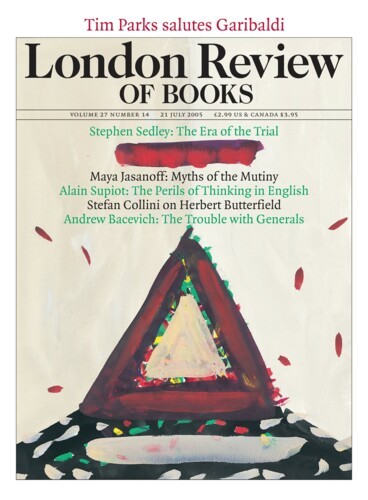Short Cuts: The Lobbying Bill
Francis FitzGibbon, 19 December 2013
The Lobbying Bill – due to complete the Lords committee stage before Christmas – is intended ‘to ensure that people know whose interests are being represented by consultant lobbyists who make representations to government’. Part One provides that lobbyists must disclose the names of their clients four times a year in a public register; there will be a registrar to...




